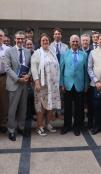The EU – a strong voice at the 50th session of the Human Rights Council
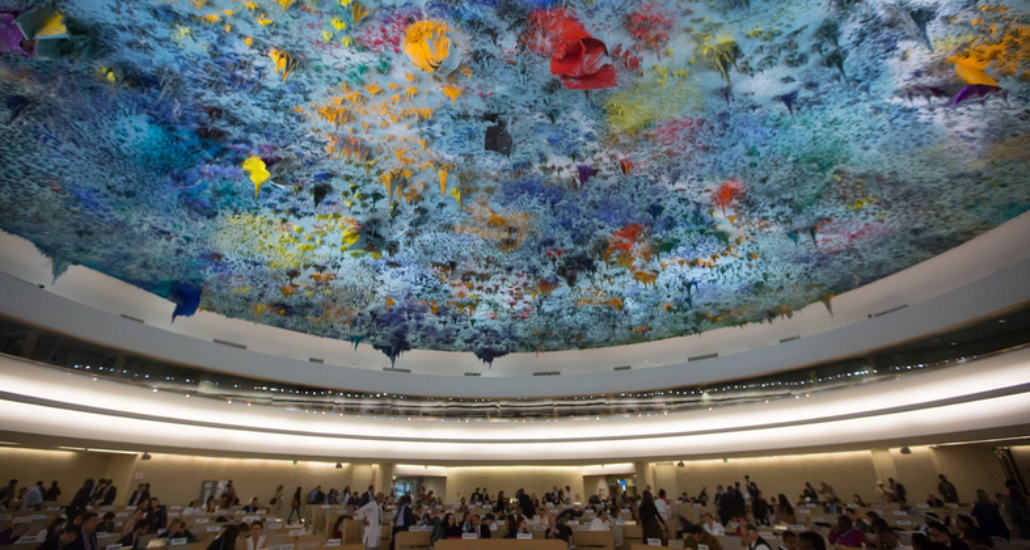
Throughout the session, the European Union condemned Russia’s unprovoked and unjustified war of aggression against Ukraine in the strongest possible terms. “We remain appalled by the indiscriminate attacks against civilians and civilian infrastructure, including schools, hospitals, malls and train stations. Such methods of warfare constitute serious violations of international humanitarian law and could amount to war crimes,” said the EU in its statement.
The EU also pointed out to the human rights situation inside Russia in a joint statement. “Over recent years, we have seen significant crackdowns and broad restrictions by Russian authorities of the rights to freedom of opinion and expression, freedom of association, freedom of peaceful assembly, as well as freedom of religion or belief. The shrinking civic space has prevented and discouraged Russians from actively participating in public life.”
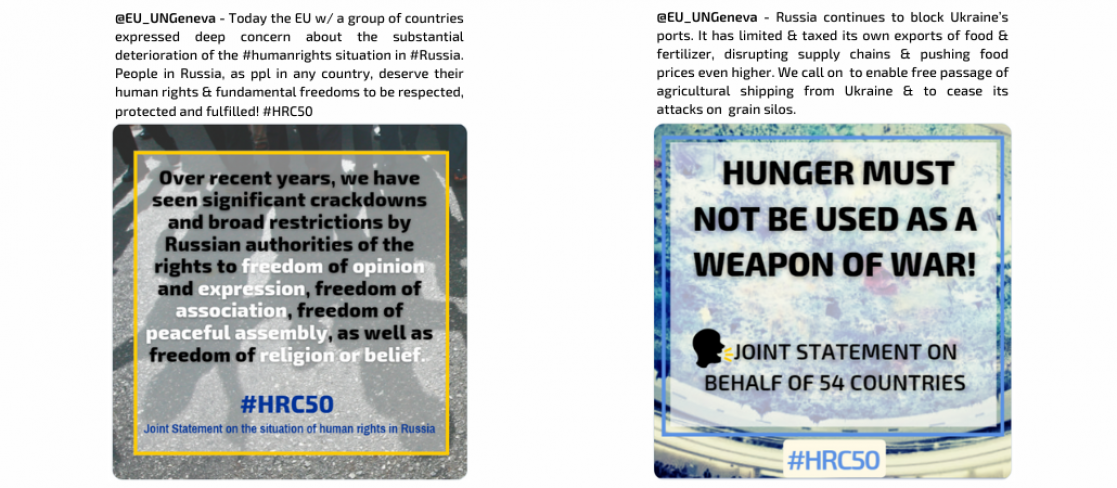
In another Joint Statement led by the EU and signed by 54 countries we addressed in particular the consequences of the war on food security worldwide: “As a result of Russia’s unprovoked war against Ukraine, millions of people around the world are being pushed into extreme poverty or severe food insecurity, with serious implications on the enjoyment of their human rights.”
The EU also successfully requested an Urgent Debate at this HRC session to address the situation of women and girls in Afghanistan. “With great concern, the EU has noticed that, since 15 August 2021, women and girls in Afghanistan have been suffering systematic violations of their rights, directly resulting from the wilful adoption of measures and policies by the Taliban, aiming at erasing them completely from all spheres of public life,” said the EU in its statement. “Afghanistan must implement its commitments to ensure the enjoyment of all human rights of all women and girls, in accordance with the State’s obligations under international human rights law.” As a follow-up to the Urgent Debate the EU led a resolution requesting an enhanced interactive dialogue on the situation of human rights in Afghanistan during the 51st session of the Council, seeking to ensure that the voices of the women and girls of Afghanistan will keep being heard in this Council.

The EU also led a resolution on the situation in Belarus, renewing the mandate of the Special Rapporteur for one year. “We are extremely concerned about intensifying systematic and widespread repression and attacks against civil society, human rights defenders and independent media in Belarus,” said the EU in its statement. Given the scale and severity of persisting human rights violations in Belarus, it is the responsibility of this Council to continue its scrutiny of the situation on the ground, as well as to ensure that the important voices of the Belarussian people are heard and allowed to prosper.
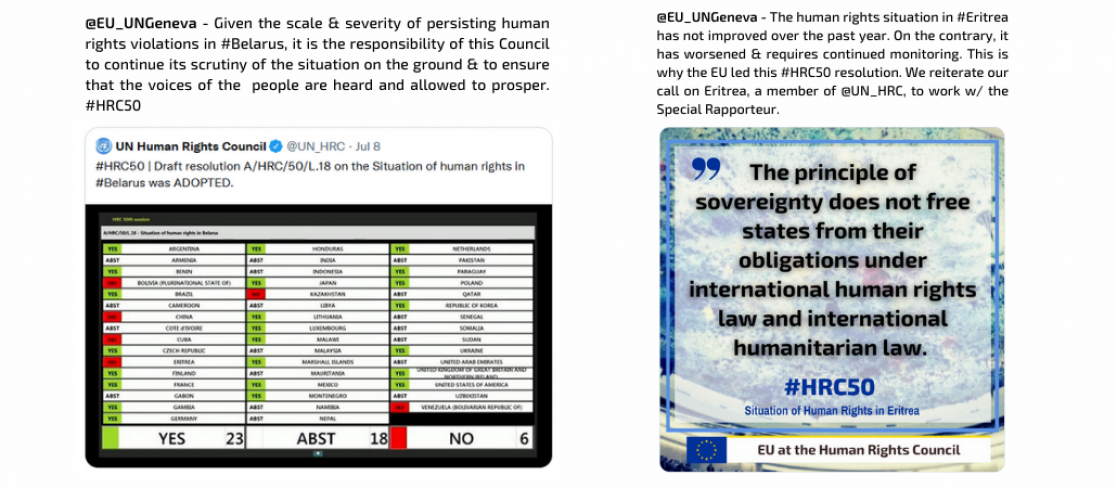
The EU also led a resolution on the human rights situation in Eritrea, extending the mandate of the Special Rapporteur. We reiterated our call on Eritrea, a member of this Council, to step away from its policy of limited cooperation and to work together with the Special Rapporteur as well as with other international and regional human rights mechanisms.
A strong defender of the human rights of women and girls, the EU was active throughout this Council session on the issue of gender equality. We therefore strongly supported the resolution adopted on eliminating discrimination against women and girls, as well as the resolution extending the mandate of the Special Rapporteur on violence against women and girls. We are deeply concerned over the pushback we have witnessed during this HRC session against long standing agreed language on gender equality. The EU will continue to stand up for equal and inclusive societies. Gender responsive policies, legislation and action are a prerequisite for democracy, sustainable development and durable peace.
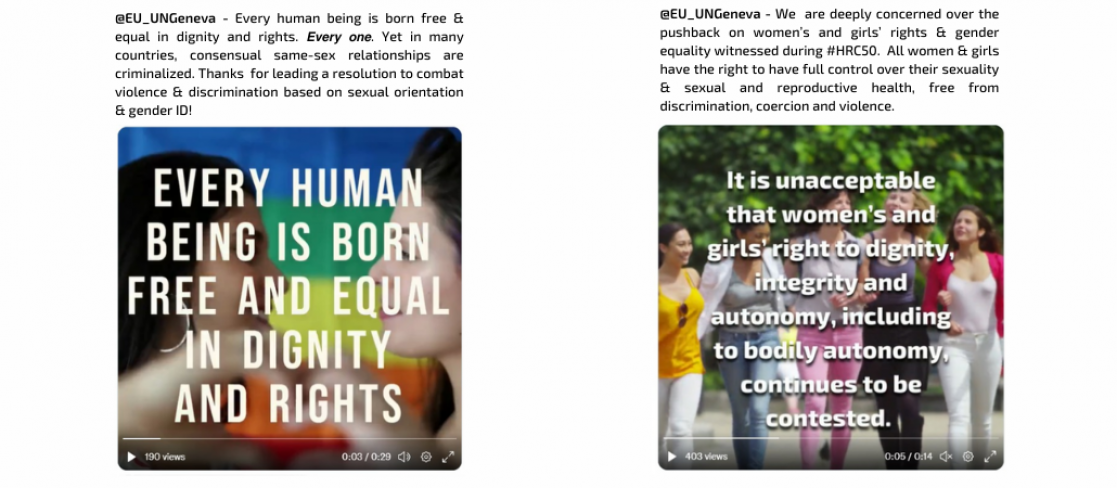
In line with our strong commitment to respect, protect and fulfil the full and equal enjoyment of all human rights by all LGBTI persons, we actively engaged in the negotiations on the resolution on the extension of the mandate of the Independent Expert on the protection against violence and discrimination based on sexual orientation and gender identity (SOGI). We also voted against all the amendments tabled to the resolution.
The EU also led a Joint Statement signed by over 100 countries, underlining our commitment to closing the various digital gaps, foster access to digital, information and media education and to empower everyone to participate confidently and safely in today’s digital society and economy.

The EU also supported resolutions addressing the human rights situation in Libya and Syria.
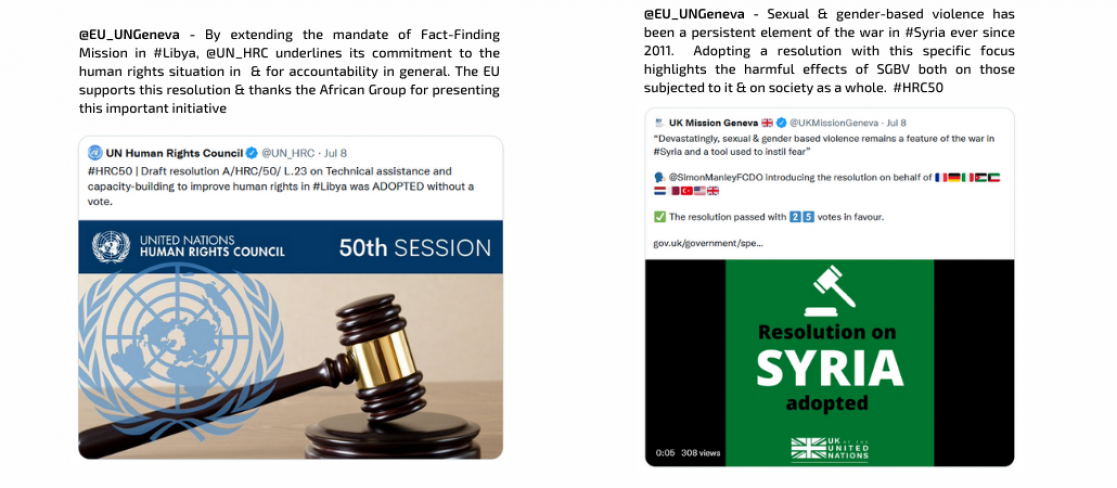
We also supported the extension of the mandate of the Special Rapporteur on Freedom of Association and a resolution on the Freedom of Opinion and Expression.
During the session, the Council held 27 interactive dialogues with Special Procedure mandate holders and mechanisms, and nine interactive dialogues with the High Commissioner.
The Council also held eight panel discussions, including on the root causes of human rights violations and abuses against Rohingya Muslims and other minorities in Myanmar; on menstrual hygiene management, human rights and gender equality; on good governance in the promotion and protection of human rights during and after the COVID-19 pandemic; on the human rights of people in vulnerable situations in the context of climate change; and on countering the negative impact of disinformation on the enjoyment and realisation of human rights.
The EU was fully engage in all discussions during this 4 weeks session. Promoting a global system for human rights is at the heart of the EU’s commitment to strengthening multilateralism and EU’s leadership in supporting the rules-based international order.
All EU statements at HRC50 are published here.


